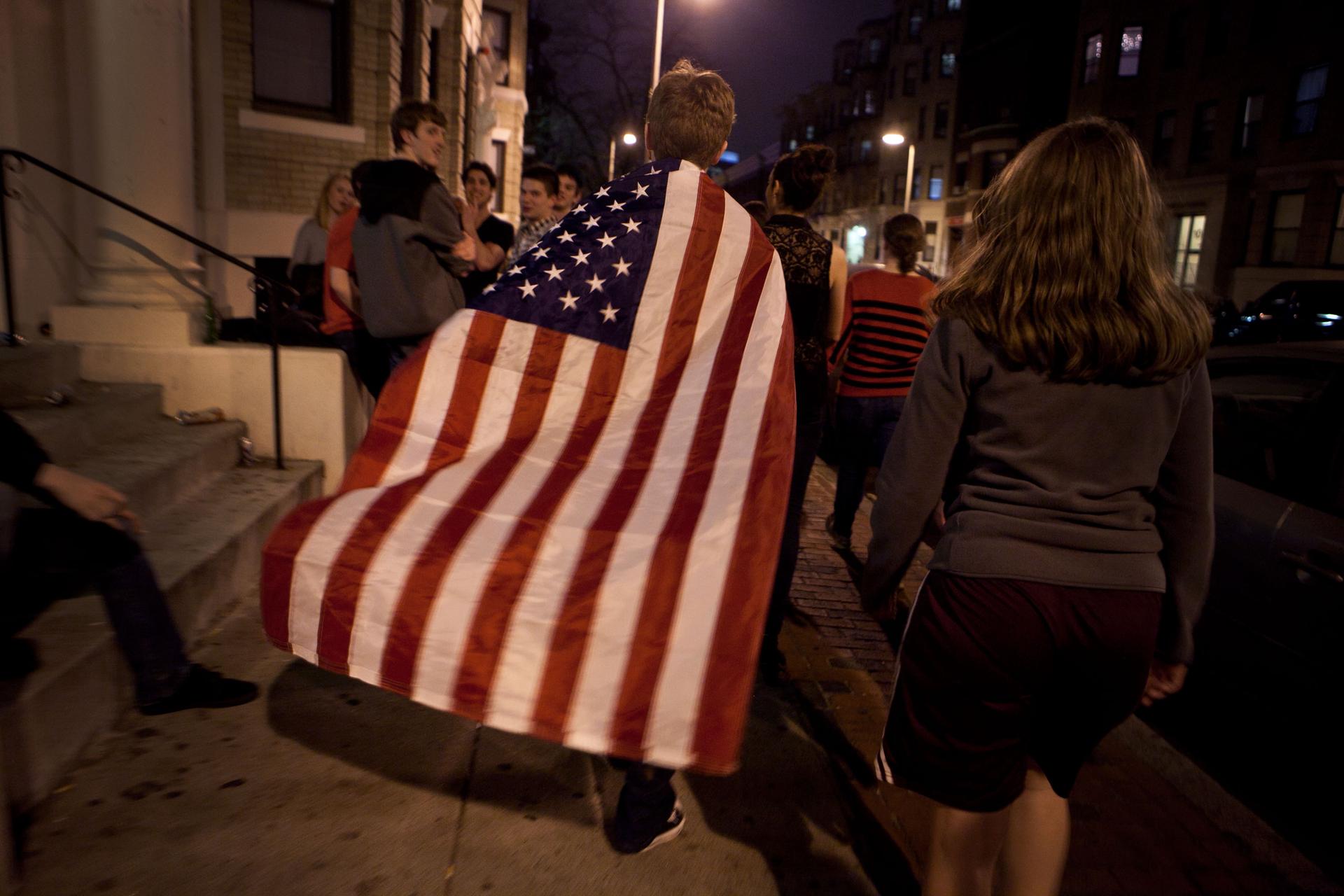Soul-searching begins as Boston bombing suspect remains in hospital
The capture of Dzokhar Tsarnaev, the surviving brother accused of planting explosives at the Boston marathon, has focused American attention on the motives of the crime.
As Dzhokhar Tsarnaev, the second suspect in the Boston Marathon bombings, clings to life in hospital, commentators, politicians and pundits have scrambled to find motives or meaning behind the attacks.
The soul-searching began in earnest after the 19-year-old was captured Friday evening in a Boston suburb, just minutes after a lockdown on the city was lifted.
Tsarnaev, whose Twitter account and descriptions from friends, appeared to be an average American kid with an immigrant background, may hopefully provide some answers as to how this tragedy occurred.
Until then, the media has begun elaborating possible motives, including connections to Islamic militancy in Chechnya.
Violence in Russia's troubled Caucus region has taken center stage in media reports.
The Los Angeles Times journalist, Carol J. Williams, writes: "Thousands of Chechen civilians, just as the Boston suspects, Dzhokhar and Tamerlan Tsarnaev, have fled the restive Caucasus republic since the first uprising for independence began in December 1994, scattering aggrieved refugees across Europe and the United States."
"That has created a diaspora of hostile emigres vulnerable to recruitment into militant Islamist causes…"
In the New Yorker, David Remnick links displacement and war with the difficulty of assimilation in a new land: "The Tsarnaev family had been battered by history before—by empire and the strife of displacement, by exile and emigration. Asylum in a bright new land proved little comfort."
"The digital era allows no asylum from extremism, let alone from the toxic combination of high-minded zealotry and the curdled disappointments of young men."
The Boston Globe said that the background's of both men pointed the way towards extremism and violence: "Young people without secure family relationships and communities are prone to radicalism of many varieties."
"The appeal of a charismatic imam isn’t all that different than a charismatic white supremacist, anti-abortion militant, or animal-rights extremist: All have been known to motivate bombings in the past."
Many fretted about the response to the attacks, including Emily Bazelon of Slate, who said that US lawmakers should pause before making any sweeping changes that could curtail liberties.
She also writes on how not reading Dzhokhar Tsarnaev his Miranda rights immediately was a bad precedent.
A little more security in most public places might do good, says an op-ed writer in the Boston Globe: "The odds of more terror attacks are greater than the odds of losing our essential freedoms."
"This week has shown that we should tighten our security and loosen our concerns about minor limitations on our freedom of movement"
More from GlobalPost: Twitter mistakes Czech Republic for Chechnya in Boston bombings
Left-wing commentators worried that there was not enough self-reflection on the part of Americans, particularly amidst drone strikes in Pakistan and Yemen that kill many innocent people, including children.
Al Jazeera commentator Richard Falk wrote: "The American global domination project is bound to generate all kinds of resistance in the post-colonial world."
"In some respects, the US has been fortunate not to experience worse blowbacks, and such could yet happen, especially if there is no disposition to rethink US relations to others in the world, starting with the Middle East."
A Boston Globe op-ed by Kevin Cullen says that this kind of thinking is nonesense: "I was on an NPR show this morning, talking as I drove back from Cambridge to write this column, and a caller came on the air and started talking about how we’ve got to look in the mirror and ask what we as Americans have done to create angry young men like this."
"I almost drove off the road. No one who lost their life or their limbs on Boylston Street last Monday did anything to create angry young men like this."
Then there were the more inane and sometimes ridiculous conclusions.
Some publications even attempted to link the brothers' interest in rap music to the bombings.
Rapper T.I. denounced the media for suggesting that rap had something to do with the bombings.
He said to TMZ: "Hip hop narrates the activity and conditions of our culture. It doesn't create them."
The bombings even created distracting and rather useless infighting among pundits and politicians.
Right-wing pundit Anne Coulter suggested via Twitter that the US immigration system may be implicated in the attacks.
She tweeted Republican politician Marco Rubio saying sarcastically: "It's too bad Suspect # 1 won't be able to be legalized by Marco Rubio, now."
Every day, reporters and producers at The World are hard at work bringing you human-centered news from across the globe. But we can’t do it without you. We need your support to ensure we can continue this work for another year.
Make a gift today, and you’ll help us unlock a matching gift of $67,000!
